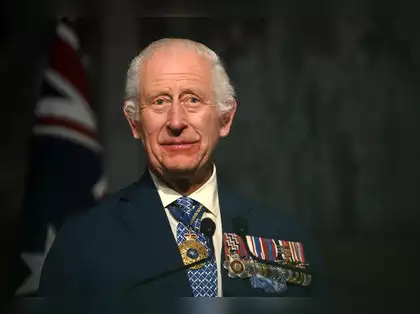As King Charles and Camilla prepare for their upcoming trip to Australia at the end of this month, the atmosphere is already charged with discontent.
Many Australians are voicing their rejection of the royal couple, indicating that their visit may not be warmly welcomed.
Just last week, former football star Craig Foster made headlines when he declined an invitation to an event attended by the royals.
Foster stated he would not participate until Australia has the chance to elect its own head of state, a bold stance that resonates with many in the nation.
In addition to Foster’s refusal, a Republican group is gearing up to protest during King Charles’s visit, highlighting the growing sentiment against the monarchy in Australia.
The situation raises questions about how the King and Camilla will handle the backlash as they embark on their ninth tour of the country, which aims to strengthen community ties while also promoting their personal initiatives, particularly in environmental conservation and domestic violence support.
Critics have been quick to call out the hypocrisy of the royal couple in championing social causes after their controversial past, particularly regarding Princess Diana.
Many view Charles and Camilla as out of touch with the very issues they claim to advocate.
Their visit seems less about genuine concern and more about competing for relevance, especially as they observe the warm receptions given to Prince Harry and Meghan Markle during their travels abroad.
It’s worth noting that the last significant overseas trip by William and Kate was to the Caribbean, where they faced notable criticism and backlash.
Since then, the couple has largely faded from international engagements.
In contrast, Charles and Camilla’s previous visit to Kenya was reportedly initiated by their request for an invitation, rather than an open welcome from the host nation.
Recent reports indicate that no state premier will be present to greet the King and Camilla when they arrive in Canberra later this month, despite invitations being extended.
This absence underscores the growing divide between the monarchy and Australian political leaders.
The royal couple is scheduled to address an event featuring prominent Australians across various sectors, but the lack of political support is telling.
Victoria’s state premier, Jacinta Allen, has publicly declined to meet the royals, joining other officials in what many are calling a significant snub.
Bev McCarthy, a spokesperson for the pro-monarchist Australian Monarchist League, described this situation as a “slap in the face” to the royal family, emphasizing that all premiers have pledged allegiance to the monarchy.
Such rejections reflect a broader sentiment among Australians who may feel increasingly disconnected from the British royal family.
Many citizens are beginning to question the relevance of the monarchy in modern society, particularly as younger generations express indifference towards royal traditions and privileges.
The royal family’s image has taken a hit, especially in light of their treatment of Meghan Markle and the implications of colonial history.
Critics argue that if the royals cannot embrace diversity within their own family, it raises doubts about their commitment to the Commonwealth nations they once ruled over.
As the countdown to the royal visit continues, many Australians are finding their voices and standing firm against what they see as an outdated institution.
The movement for independence from the monarchy is gaining traction, with citizens eager to break free from what they perceive as an archaic system that no longer serves their interests.
With each passing day, the pressure mounts for Charles and Camilla as they prepare for a potentially frosty reception in Australia.
The royal couple’s attempts to connect with the public may be met with resistance, as Australians assert their desire for self-determination and a reevaluation of their ties to the British crown.
As the situation unfolds, it’s clear that the Australian public is ready to engage in a conversation about their national identity and the role of the monarchy in it.
The upcoming visit promises to be a pivotal moment for both the royals and the citizens of Australia, as the dialogue around the monarchy continues to evolve.
Related Stories

